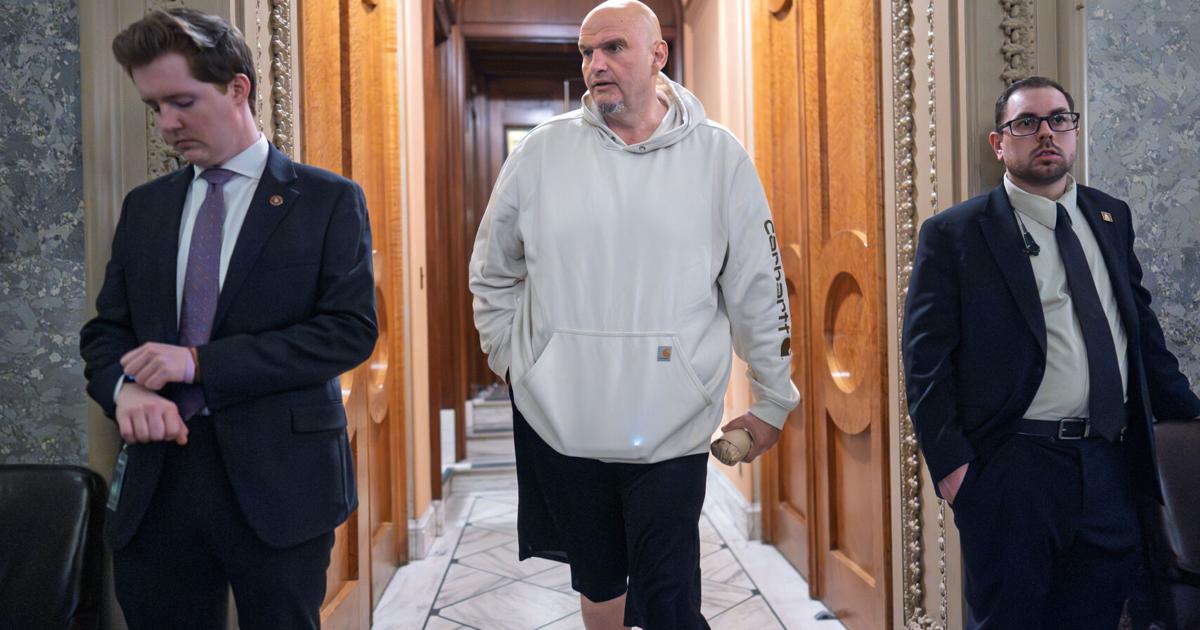**Senate Passes Bill to Reopen Government, Move Closer to Ending Longest Shutdown in History**
WASHINGTON — The Senate passed crucial legislation Monday to reopen the federal government, marking a significant step toward ending the longest shutdown in U.S. history. This move came as a small group of Democrats joined with Republicans to secure enough votes, despite facing strong criticism from within their own party.
**Shutdown Nears End, House Vote Awaits**
The 41-day shutdown may last a few more days, as House members prepare to return from a lengthy recess to vote on the bill. President Donald Trump expressed support for the legislation, stating Monday, “we’re going to be opening up our country very quickly.”
The Senate ended a grueling six-week stalemate with a 60-40 vote. The deadlock centered on Democrats’ demands for negotiations to extend health care tax credits set to expire on January 1. While Republicans did not formally agree to those talks, five moderate Democrats eventually sided with them as the shutdown’s effects intensified—federal food aid halted, airport delays worsened, and hundreds of thousands of federal workers went without pay.
House Speaker Mike Johnson urged lawmakers to return to Washington “right now” to tackle the shutdown, citing ongoing travel delays. “We have to do this as quickly as possible,” Johnson said.
**How the Stalemate Ended**
After weeks of negotiation, a trio of former governors—New Hampshire Sens. Jeanne Shaheen and Maggie Hassan, along with Independent Sen. Angus King of Maine—brokered a deal. They agreed to advance three bipartisan spending bills and extend funding for the remainder of the government through late January.
As part of the compromise, Republicans pledged to hold a vote on health care subsidies by mid-December, though the outcome is not guaranteed. “This was the option on the table,” Shaheen said, after repeated Republican refusals. She added that the promise of a future vote “gives us an opportunity to continue to address [health care] going forward.”
The legislation also reverses mass federal worker firings that occurred under the Trump administration during the shutdown’s onset in October. It protects federal workers from future layoffs through January and ensures all are paid retroactively.
**Key Votes and Party Reactions**
Alongside Shaheen, King, and Hassan, Democratic Sen. Tim Kaine of Virginia—home to many federal workers—voted in favor. They were joined by Illinois Sen. Dick Durbin, Pennsylvania Sen. John Fetterman, and Nevada Sens. Catherine Cortez Masto and Jacky Rosen.
Most Democrats, including Senate Majority Leader Chuck Schumer of New York, voted against the deal. While 10-12 Democratic senators participated in negotiations, ultimately only five switched their votes—precisely the number Republicans needed. King, Cortez Masto, and Fetterman had been consistent in voting to reopen the government since the shutdown began.
**Democratic Debate: “A Mistake”?**
Schumer faced criticism from his own party, recalling backlash from March when he voted to prevent a shutdown. After a lengthy caucus meeting, he said he could not “in good faith” support the bill but remained committed to fighting for health care. “We will not give up the fight,” Schumer insisted, noting that Democrats have “sounded the alarm” on the health care issue.
Independent Sen. Bernie Sanders of Vermont called the concession a “horrific mistake.” Sen. Chris Murphy (D-CT) agreed, saying constituents wanted Democrats to “hold firm.”
The Congressional Progressive Caucus also voiced opposition. Texas Rep. Greg Casar labeled the deal a “betrayal” for not addressing health care costs, which many Americans hoped Democrats would fight for.
However, some Democrats supported Schumer’s leadership. House Democratic Leader Hakeem Jeffries, critical of Schumer earlier in the year, praised him on Monday and expressed support for his approach throughout the shutdown. “The American people know we are on the right side of this fight,” Jeffries said, referencing recent election results.
**Health Care Debate Looms**
It remains uncertain whether Democrats and Republicans can agree on extending health care subsidies before the promised December Senate vote. House Speaker Mike Johnson (R-LA) has not committed to bringing the measure to the House floor, stating only that Republicans support reforming the “unaffordable care act.”
Some Republicans are open to extending COVID-19-era tax credits to prevent premium spikes for millions but want limits on eligibility, such as new income caps—an idea some Democrats have signaled willingness to consider. Senate Appropriations Committee Chair Susan Collins (R-ME) said she supports extending the tax credits, combined with additional changes.
On the other hand, President Trump and some Republicans have rekindled their calls to overhaul or repeal the legislation entirely. In a preview of the looming fight, the Senate defeated an amendment to extend the subsidies for a year by a 47-53 party-line vote on Monday. The vote was held as part of a separate bipartisan agreement to expedite the shutdown-ending bill’s passage.
As the legislation moves to the House and the debate over health care subsidies continues, federal workers and millions of affected Americans await the shutdown’s final resolution.
https://www.phillytrib.com/news/senate-approves-bill-to-end-the-shutdown-sending-it-to-the-house/article_f64433df-b7b0-47f4-a9ed-6c6c2a6406fc.html
